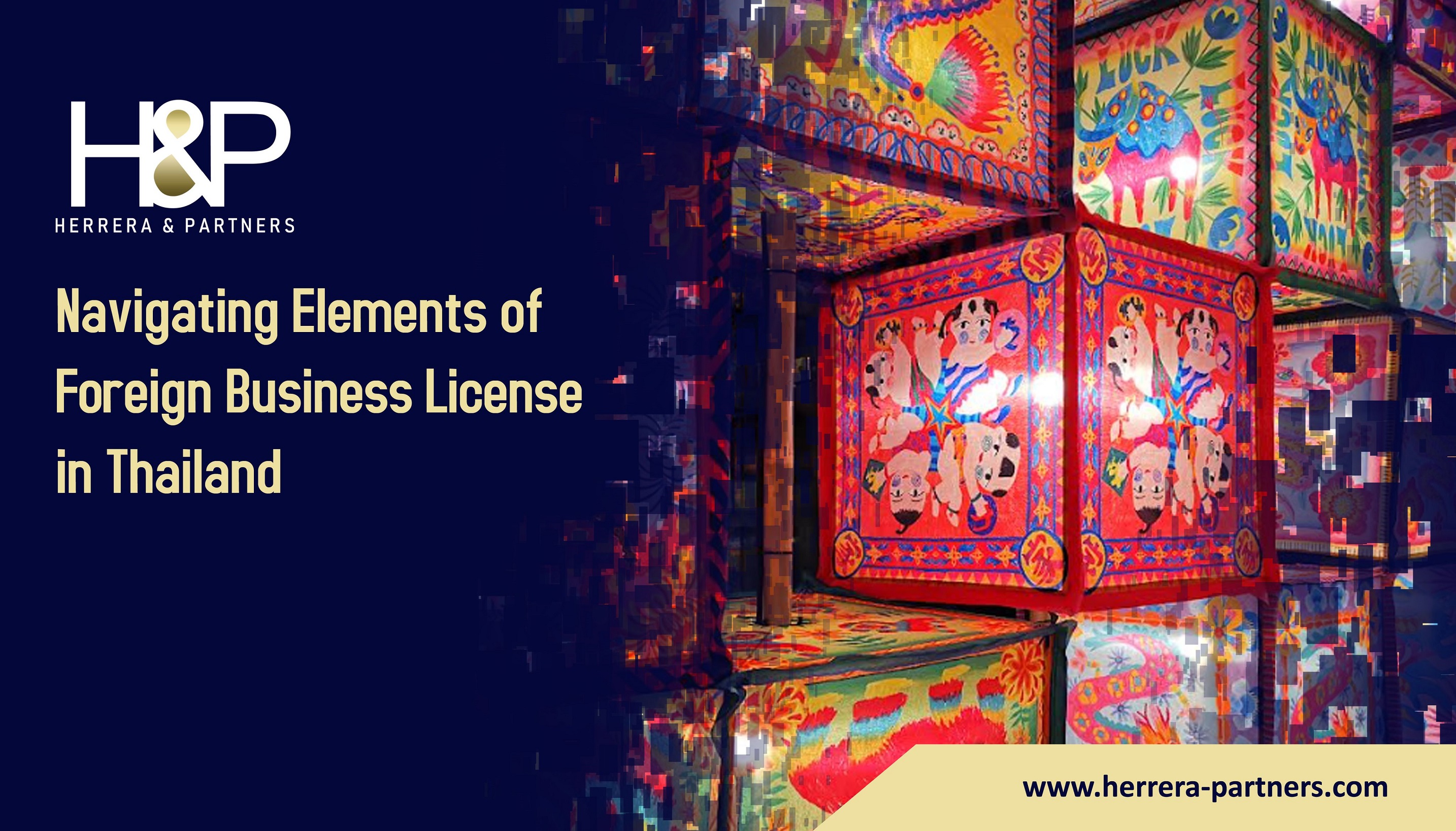
In recent years, Thailand has emerged as a prime destination for international businesses seeking to expand their footprint in Asia. This Southeast Asian nation is not only a tourist paradise but also a burgeoning business hub. The proactive approach in welcoming foreign business in Thailand is noteworthy, yet it is crucial for business owners to understand the narrative of its business landscape, particularly the legalities pertaining to obtaining a foreign business license in Thailand.
Today, we will guide you through the fundamental details of business licenses in Thailand, which is especially essential if you are planning to establish a business in this country.
Understanding Business Licenses in Thailand
Generally, initiating a business venture in Thailand necessitates the acquisition of a business license or permit, a fundamental step for lawful operation. In addition, the specific licenses required depend on the nature of your business activities.
Certain sectors are subject to stringent regulations and, therefore, demand specific licensing. These include but are not limited to, tourism, education (such as schools and childcare facilities), the sale of alcohol, healthcare and medical services, as well as the food and beverage industry. Each of these fields has its own set of regulatory requirements and compliance standards.
Under the Foreign Business Act (FBA), certain business activities are wholly reserved for Thai nationals. This protective measure is designed to safeguard specific sectors and ensure economic benefits for Thai citizens. However, foreign entities are not completely barred from these reserved activities. It’s possible for foreign investors, foreign shareholders, and foreign businesses in Thailand to apply for foreign business licenses.
So, it is vital to recognize the legal framework of FBA that governs foreign business activities in Thailand.
How Do Foreign Business Licenses in Thailand Work?
The Foreign Business Act (FBA) came into effect in B.E. 2542, which aims to regulate activities that can and cannot be conducted by foreigners and foreign-owned companies or have to remain controlled in specific ways.
FBA’s Definition of a Foreigner
Section 4 of the FBA defines a foreigner as the following:
- A natural person who is not of Thai nationality
- A juristic person not registered in Thailand
- A juristic person registered in Thailand, being of the following descriptions:
- Being a juristic person, at least one-half of capital shares of which are held by persons under (1) and (2) or a juristic person in which investment has been placed by the persons under (1) or (2) in the amount at least equivalent to one half of the total capital thereof.
- Being a limited partnership or a registered ordinary partnership, the managing partner or the manager, of which is the person under (1).
- A juristic person registered in Thailand at least one-half of the capital shares of which are held by persons under (1), (2), or (3) or a juristic person in which investment has been placed by the persons under (1), (2) or (3) in the amount at least equivalent to one half of the total capital thereof.
Types of Business Activities in Thailand
In accordance with FBA, business activities are categorized into 3 distinct lists, each delineating the extent of foreign participation allowed:
List 1: Restricted businesses / Businesses Strictly Not Permitted to Foreigners.
Examples: Newspaper business, Rice farming, Animal farming, Forestry and wood fabrication from natural forests, Fishery for marine animals in Thai waters and within Thailand-specific economic zones, Extraction of Thai herbs, and Trading and auctioning Thai antiques or national historical objects.
List 2: Businesses related to National Safety or Security or having an impact on Arts, Culture, Traditions, Customs and Folklore, Handicrafts or Natural resources and the Environment.
Examples: Production, selling, repairing and maintenance of firearms, ammunition, Domestic land, waterway or air transportation, Trading Thai arts, Silkworm farming, Production of Thai silk yarn, waiving Thai silk or Thai silk pattern printing, and Salt farming and rock salt mining.
List 3: Businesses in respect of which Thai Nationals are not ready to compete with Foreigners
Examples: Accounting and legal service business, Architecture and engineering service business, Internal trade connected with native products, Advertising business, and Guided tours.
Each list under the FBA represents a different level of restriction on foreign businesses. Activities under List 1 are strictly prohibited to foreigners. Foreigners can operate business under List 2 with permission granted by the Cabinet. Similarly, activities under List 3 can be operated by foreign entities with authorization from the Director-General of the Commercial Registration Department (“CRD”).
Ownership of a Thai company Under the Foreign Business Act
On top of the foreign-prohibited activities above, the ownership stake of foreigners in a Thai limited company is typically limited to a maximum of 49.99%. This stipulation is in place unless the company has obtained a Foreign Business License (FBL) or a promotion from the Board of Investment (BOI), which can allow for greater foreign ownership. If 50% or more of the shares of a company are owned by a foreigner, it is considered a foreign company and requires a foreign business license.
Interestingly, there are strategic advantages to being a minority shareholder in a Thai limited company. If foreign ownership is kept below 50%, the company is classified as a Thai entity. This classification exempts the company from the stringent restrictions imposed on foreign companies by the FBA, offering more flexibility in business operations.
However, it’s crucial to recognize the legal boundaries set by the FBA, especially regarding the use of nominee shareholders. In Thailand, a nominee shareholder is a Thai national who holds shares in a company but does not have legal rights or the ability to control or manage the company. The FBA expressly prohibits the use of nominee shares, underscoring the importance of compliance with local laws and regulations.
Obtaining a Foreign Business License
As mentioned above, for foreign entities aiming to partake in business activities in Thailand listed under List 2 and List 3 of the FBA, obtaining a Foreign Business License (FBL) is essential.
To apply for a FBL, an application must be filed with the Business Department. Once the application is filed, it undergoes a review process that is typically conducted either by the Cabinet or the Foreign Business Committee, depending on the nature of the business activity and the specific regulations that apply.
Criteria for Evaluation
The evaluation of an FBL application is multifaceted, encompassing various critical aspects, such as:
- National Safety and Security: The impact of the business on Thailand’s safety and security is a paramount consideration.
- Economic and Social Development: How the business contributes to the overall economic and social growth of the country is assessed.
- Enterprise Size and Local Employment: The scale of the enterprise and its potential to create job opportunities for Thai citizens are significant factors.
- Other Considerations: Various other aspects, such as environmental impact and alignment with national policies, may also influence the decision.
Criteria for Approval
Approval for FBL is more likely if the business demonstrates certain key attributes:
- Substantial Benefits: A clear indication that the business will provide significant advantages to Thailand.
- Support for Thai Interests: The business should align with and promote Thai interests, showcasing respect and support for local culture and practices.
- Non-Competition with Thai Businesses: Enterprises that do not directly compete with Thai-owned businesses are viewed more favorably.
Navigating the process of acquiring a foreign business license in Thailand demands a comprehensive understanding of the FBA and a strategic approach to meet the various criteria set by the authorities. However, the steps toward acquisition can be perplexing and require a lengthy involvement from different parties.
Enlisting the assistance of a Law Firm in Bangkok that is an expert in international legal landscapes can prove to be more advantageous and make the process considerably easier. In this regard, professional teams of lawyers at H&P are ready to help you.
Contact H&P
At H&P, our lawyers provide an extensive array of legal services, ranging from setting up a representative office in Thailand to intellectual property trademarking and more, catering to both individual and corporate clients. We pride ourselves on our deep understanding of local and international legal landscapes, ensuring our clients receive the best strategic advice.
For our foreign business license service in Thailand, click here.
Email: [email protected]
Telephone: +66 22545600
Office in Bangkok: Herrera and Partners Co., Ltd. 142 Two Pacific Place, 17th Floor, Sukhumvit Road, Klongtoey, Klongtoey, Bangkok 10110


